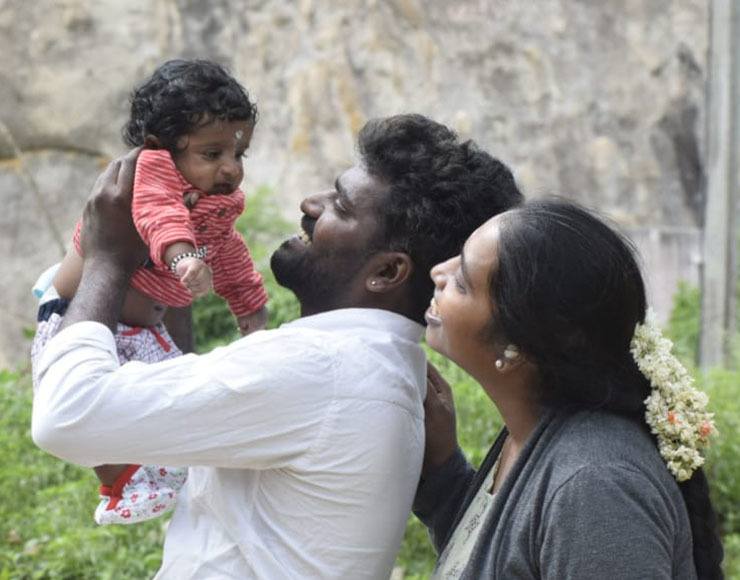In the bustling metropolis of Bangalore, India—home to over 13 million people and known as “India’s Silicon Valley”—a young couple is following their passions for sustainable farming and social justice. Kavitha and Narendra are devoted to protecting the planet through their work, while also striving for equality in their marriage—something that’s not a given in India, where strict gender norms often dictate the roles men and women play in families and in society.
Their journey has been supported by Samvada, an organization supported by AJWS. Samvada, which means “conversation” in the local Kannada language, supports and mobilizes young people to pursue their dreams, build the lives they want—not the lives prescribed by their parents or caste—and transform society by challenging patriarchy, prejudice based on caste and religion and other forms of discrimination.
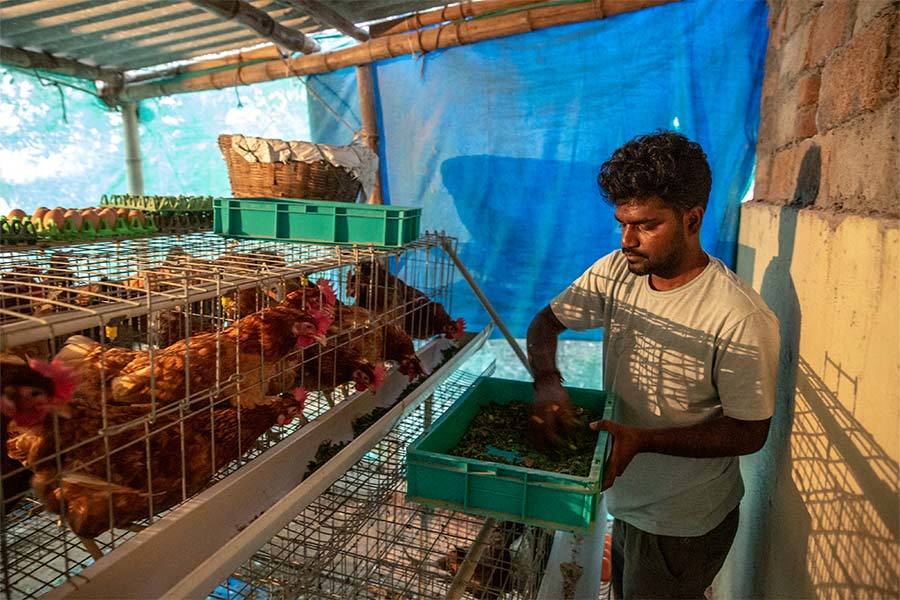
When Narendra took a sustainable farming course with Samvada a decade ago, it changed his life. The course stoked his passion for sustainability and his interest in farming, and he started to raise chickens and sell their eggs. And while Narendra was learning about growing apples and millet organically, he was also questioning his beliefs about gender and caste, because critically examining gender roles and caste discrimination is woven into all of the curriculum at Samvada’s Baduku College. “I had prejudices before I came to Samvada. I was following patriarchy and casteism,” Narendra said.
Narendra also started working with a Samvada mentor, Ramesh, exploring how to pursue his love of farming while working during the day as a successful graphic designer. He met his wife Kavitha, a scientist working in a lab analyzing food nutritional value and safety, through a forum on sustainable farming. They bonded over their shared interests and soon fell in love.
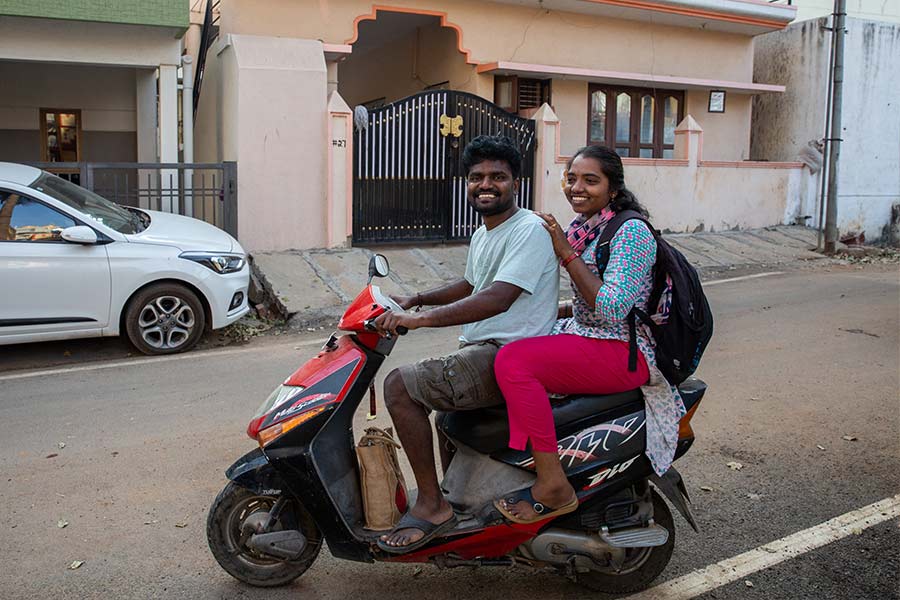
Narendra and Kavitha wanted to marry, but knew they were up against the swift currents of caste and tradition. Both Narendra’s and Kavitha’s parents had been working to choose their children’s spouses and arrange their marriages. Their parents opposed their union because they are from different castes and have different levels of education. Narendra’s parents did not like that Kavitha worked outside of the home and planned to continue her career after getting married.
But Narendra and Kavitha didn’t back down: They employed the negotiation skills they learned from Samvada and had immense support from Ramesh, who explained to Narendra’s parents, “This is Narendra’s life, let him live it. This is what he wants.”
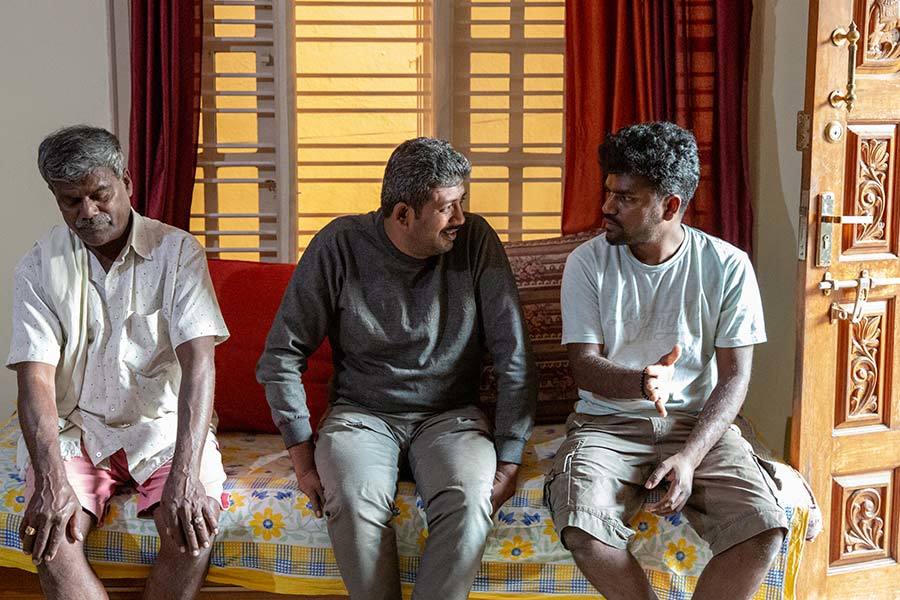
After weeks of negotiation with their parents, the couple had a joyous and nontraditional wedding. Not only did Kavitha and Narendra gain the support of their families, but they were also able to eschew the traditional patriarchal wedding vows in favor of making commitments to equity within their relationship. They also rejected the traditional exchange of a dowry, in which a bride’s parents pay a price to a groom’s parents.
They celebrated their wedding at a community farming center, a beautiful setting perfect for a couple who are growing a relationship with respect for gender equality and sustainability.
From pandemic stress to pursuing a farming dream
When the pandemic hit, Narendra and Kavitha had already built a strong foundation on which to withstand the challenges of the pandemic. As an essential worker, Kavitha continued in-person work throughout the pandemic, and the couple kept their household duties equitable. When Narendra’s graphic design office closed, he found remote work stressful and less fulfilling. He had always wanted to pursue farming as a career, though he had kept it as a side job or hobby because of the financial stability his graphic design work brought.
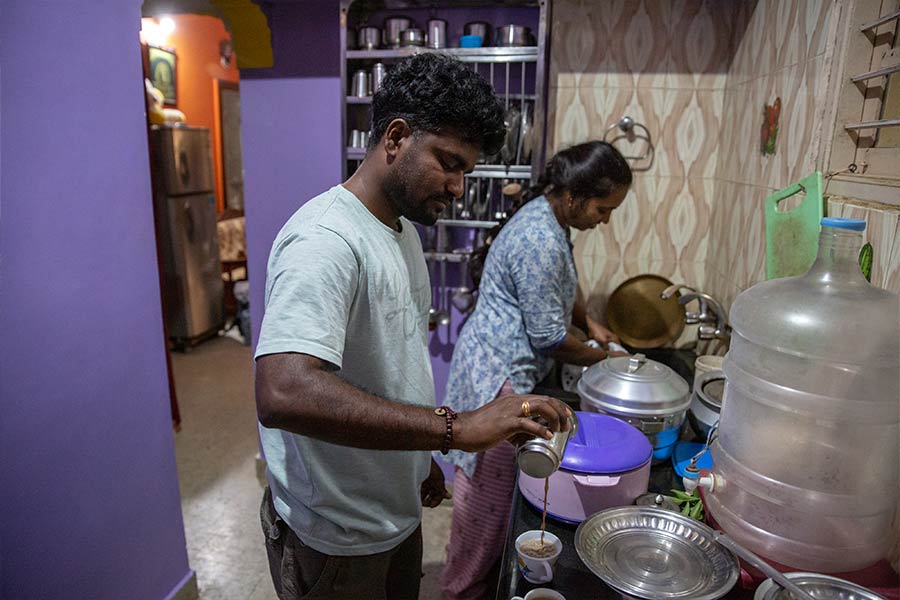
Narendra’s longing to spend more time pursuing his agricultural interests intensified the longer he worked remotely. With support from Samvada, Narendra scaled back and eventually quit his job as a graphic designer, leasing a larger plot of land to cultivate more crops. Samvada’s vast network of farming experts helped Narendra connect with communities and consumers who wanted organic produce like mangoes and grains, and he was able to deliver directly to them rather than go through existing markets—reducing his costs. Narendra is already making a profit from farming, which can be rare for those just starting out.
Narendra’s father Govindappa has gone from being skeptical about sustainable and organic farming to fully supporting his son’s new career. “I believe in my son. He knows more about farming than me. I have high hopes for Narendra,” Govindappa shared.
Not only are Narendra and Kavitha pursuing their passions, but they also welcomed a healthy baby boy earlier this year. They hope to take one of Samvada’s parenting courses, which focus on equitable roles for both parents and nurturing an open-minded family. Narendra shared that he and Kavitha “want to be as supportive as possible for our son, not imposing expectations on him, but letting him grow and explore his own dreams.”
